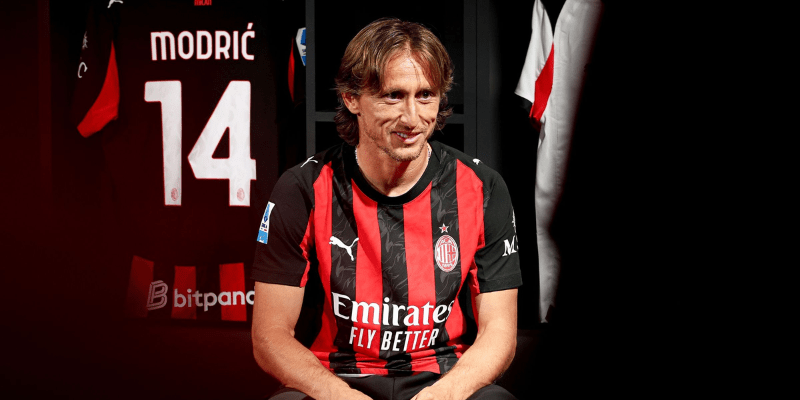The name Luka Modrić echoes across stadiums, from the buzzing Bernabéu to the electrifying nights of the World Cup. But off the pitch, there’s another kind of fluency that marks him as truly global — his linguistic ability. In this article, IndiGoal dives into the question: what languages can Modric speak, how he learned them, and how his multilingual edge shapes his life in football and beyond.
Native Tongue: The Foundations in Croatian

Luka Modrić’s mother tongue is Croatian, the language he first carried in his heart and voice. Growing up in Zadar and its surrounding regions, his formative years unfolded in an environment steeped in Croatian culture and dialect. It’s where his earliest memories, family conversations, and youth football dreams took shape., not just for life in Croatia but for the international stages he’d come to dominate.
English: A Must in the Premier League Era
When Modrić joined Tottenham Hotspur in 2008, he entered the world’s biggest football market, where English is not optional — it’s essential. Over his four seasons in London and beyond, he mastered English to mediate tactics, form bonds in the locker room, and conduct interviews with international media.
Today, his English is polished — direct, professional, and confident. It is his default tool for interviews on global platforms.
Spanish: Fluent After Years at Real Madrid
Arriving at Real Madrid in 2012, Modrić immersed himself in Spanish — the language of his new home, teammates, and media. Over more than a decade in Madrid, he reached a high level of fluency, often speaking at press conferences and communicating naturally in Spanish.
His Spanish isn’t just practical — it reflects the deep personal life he’s built in Spain.
Italian: A New Chapter With AC Milan
In 2025, Modrić made a surprising shift, joining AC Milan. To thrive in Italy’s Serie A and integrate with his teammates and staff, he’s picked up Italian. Reports indicate he is proficient in Italian — at least conversationally — allowing him to interact smoothly within Milan’s squad.
Though not his strongest language yet, Italian joins his repertoire, adding value both on and off the field.
Other Languages: What He Doesn’t Speak (Fully)
While Modrić is praised as a polyglot, there are languages he admits not mastering:
- French: In interviews, he’s confessed he doesn’t speak French fluently — though he knows “a few swear words.”
- Regional dialects / Serbo-Croatian variants: Given his Croatian roots, he can navigate dialectal similarities in Balkan languages, but that’s different.
In short: he leans on his strong trio (Croatian, English, Spanish) and bolsters them as needed.
How He Learned: From Survival to Mastery

Modrić’s linguistic journey wasn’t about leisure — it was necessity. Each move demanded adaptation:
- Environment immersion: In England, Spain, and now Italy, he lived, trained, and socialized in those languages.
- Daily practice: To stay sharp, he keeps reading, listening, and conversing.
- Cultural integration: He blends language with local culture — not just for media, but for relationships, contracts, and daily life.
Because of this, his fluency is deep: he’s not translating in his head — he’s thinking in multiple tongues.
Impact on Football: More Than Just Words

Modrić’s linguistic skills yield big advantages in the football world:
- Tactical clarity: He can understand and relay instructions fast in multiple languages, which enhances his role as a midfield conductor.
- Team chemistry: Being able to speak to teammates in their language accelerates trust and cohesion.
- Public persona: He handles media in English, Spanish, Croatian — giving him reach and authenticity among diverse fans.
- Leadership: As captain of Croatia and senior figure at club level, his voice carries weight, and multilingualism strengthens that voice.
Frequently Asked Questions
| Question | Answer |
| How many languages does Modric speak fluently? | At least three: Croatian, English, Spanish |
| Does he speak Italian? | Yes, to some degree (useful since joining AC Milan) |
| Is Modric fluent in French? | No, he’s said he only knows a few phrases in French |
| Can he understand Balkan dialects? | Yes, due to linguistic proximity, but that’s different from full fluency |
Final Thoughts
In this article, IndiGoal has revealed how what languages can Modric speak is more than trivia — it’s part of what makes him a modern football icon. He masters Croatian, English, and Spanish with confidence, and continues building his Italian skills. His linguistic versatility supports his leadership, tactical influence, and international appeal.
If you want to dive deeper — maybe into how language skills compare among top footballers, or how bilingualism affects careers — let me know. I’m ready to explore next with you.
